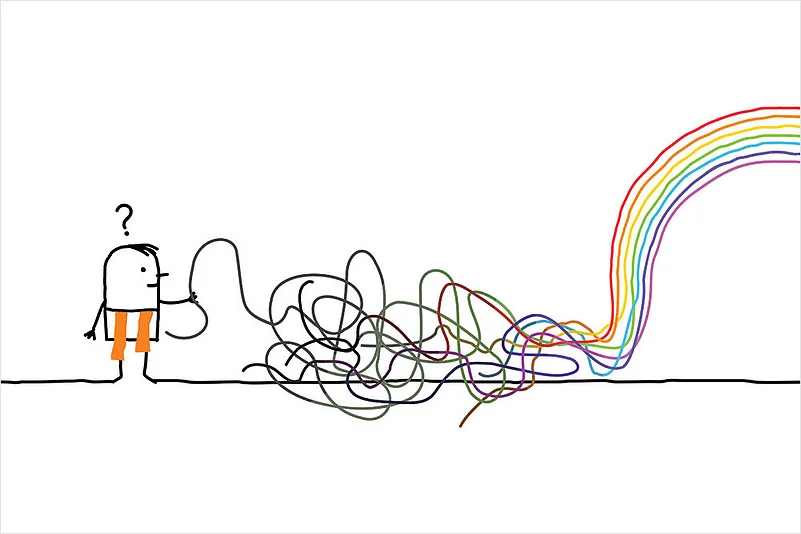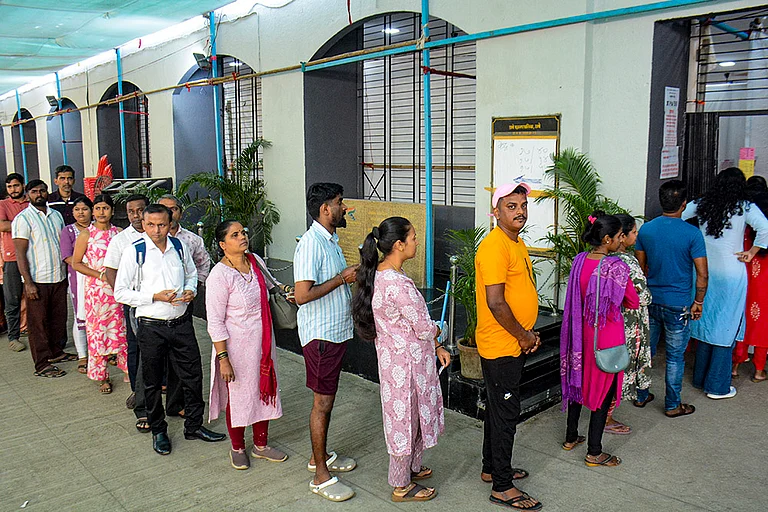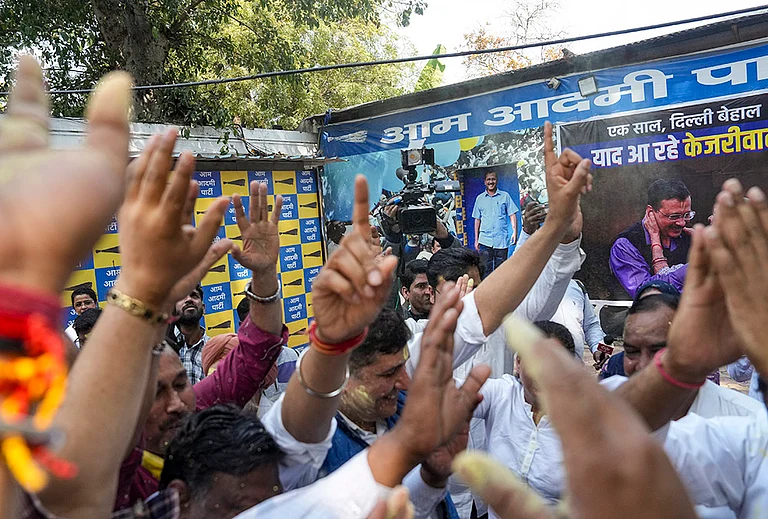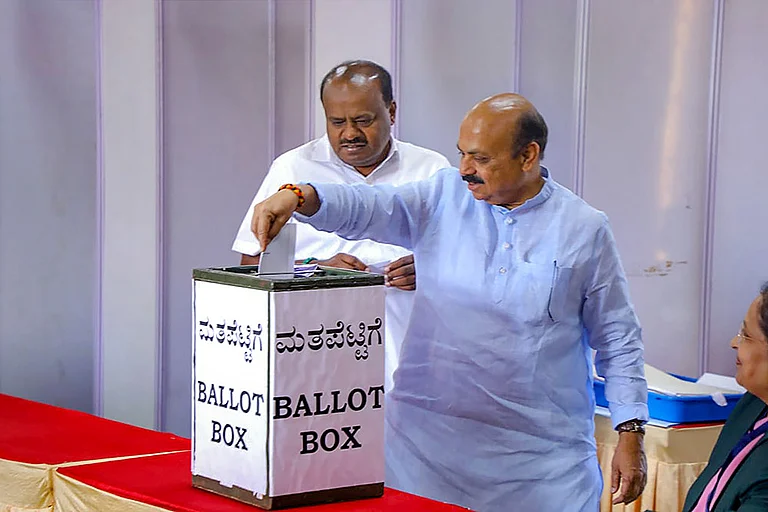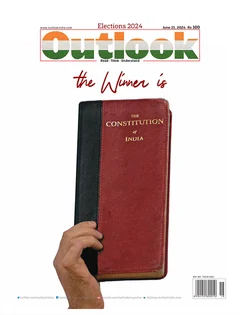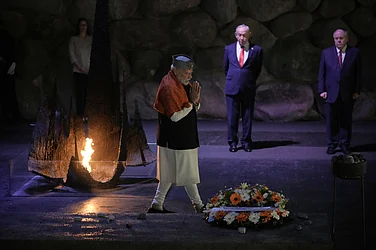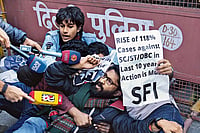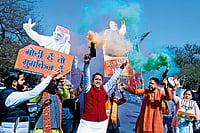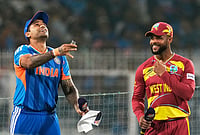India’s 2024 General Election began as a dull affair and ended up as perhaps the most interesting phenomenon observed in the recent past. The election began as a traumatic experience for the electorate that could not endorse either of the blocs—the National Democratic Alliance (NDA) or the INDIA bloc. The electorate ended up passing on the trauma to the rulers for the rest of the term. The existential economic crisis that the majority of the people are facing on the ground has been converted into instability for the ruling alliance. It will be a constant reminder to not take ‘the people’ for granted. They cannot be taken for a ride. They were part of the ride to fulfil their own aspirations that was read by the strongman as unadulterated admiration that reached its pinnacle in the shift of the narrative from being a chowkidar to being divinely ordained and avinashi.
The verdict clearly states that they disapprove of Narendra Modi’s hubris, but are not yet prepared to trust the opposition parties. They have left both the ruling alliance and the opposition in a tantalising equation for the rest of the term; it will now be a virtual see-saw battle. It will be of great interest to watch if Modi can reinvent himself into a more affable persona who can carry people, and more importantly, diverse views and dissent.
The election was a battle between authoritarian-populism and liberal constitutionalism. What the electorate seems to be hinting at is the need to reinvent both ends of the spectrum to produce a unicorn democracy—a democracy that has cultural belonging with economic justice, a populist constitutionalism. As of today, political parties have offered an either/or choice. Modi’s claims to development and economic mobility fell flat, and opposition parties’ recalibrated cultural claims around being Hindu or adapting to the local cultural idiom look inauthentic. The electorate refused to make a choice and compelled the ruling elite to reinvent a new version of a unicorn democracy that honours populism’s cultural centrality, alongside constitutionalism’s social and economic justice. Much of the election campaigns pitched one against the other—Ram versus rojgar or Ram versus roti. But people are looking for aastha aur nyay. In fact, for the people, one cannot possibly exist without the other.
Further, there seems to be a caution against misdirecting the sense of belonging and economic vulnerability. Cultural belonging does not mean hate; just as social justice cannot be reduced to the old ‘mai-baap’ patronage. Social democratisation—loosening up of caste and gender hierarchies—has foregrounded the local cultural idiom as a mode of self-confidence/expression and collective assertion. Populism in and as local idiom allows people to speak their language and not something taught from above. The Hindu cultural and civilisational agenda of the Bharatiya Janata Party-Rashtriya Swayamsevak Sangh (BJP-RSS) combine continues to resonate, and it’s reflected in the mandate that the BJP has garnered. People, however, have clearly refused the attempt by the BJP-RSS to instrumentalise culture and use it in lieu of social mobility. This gets reflected in the failure of the BJP to fight the election on the issue of Ram Mandir. In fact, the BJP lost even in Ayodhya, which falls under the Faizabad constituency, as it did when it lost in the Uttar Pradesh assembly elections after the demolition of the Babri mosque in 1992. Cultural belonging is about dignity, not against diversity. It is about recognition, not against secularism. It is about memory, not about hubris. The electorate has offered an outside chance to the BJP-RSS to rectify its hare-brained hysteria that it wished to shove down the throats of the common people. Will the BJP-RSS make a course correction in the third term granted to them?
The opposition parties, both the Congress and the rest of the regional parties, did well to demonstrate the electoral viability of a constitutional discourse. They fought their way back with issues of employment, inflation and the rule of law. However, it’s not constitutionalism as an abstract ideal, but in terms of a concrete vision of social justice around the issue of reservations. Earlier campaigns of ‘save democracy, save constitution’ did not resonate, but it made sense when the opposition raised the possibility of tampering with reservations for the Scheduled Castes (SCs), the Scheduled Tribes (STs) and Other Backward Classes (OBCs). The opposition—especially with Rahul Gandhi demonstrating a resolve to fight with conviction for social justice—resonated, but it remained ideological and not experiential. The opposition continues to remain ad hoc and non-committal on the cultural front. They made a series of attempts of owning up the Hindu agenda by temple-hopping, and making a difference between Hindutva and Hinduism, but none of that convinced the electorate about enhancing Hindu pride. The RSS had already taken the precaution of projecting being a Hindu as being both militant as well as a cultural ‘way of life’ and civilisational ethos. The question that will continue to haunt the opposition is how one re-signifies Hindu identity beyond the pale of what the BJP-RSS have to offer. Will they see the long-term need to reinvent the meaning of being a Hindu, if they are to resist turning India into an ethnic democracy?
Cultural belonging is about dignity, not against diversity. It is about recognition, not against secularism. It is about memory, not about hubris.
The opposition has also been found wanting in terms of their own track record. The BJP, under Modi, succeeded in pushing them on the backfoot. The opposition was worried about being caught in the net of polarisation and thereby facing a Hindu backlash. The opposition could neither stand with the Muslims being lynched nor recalibrate caste inequalities. The Congress, for instance, continues to remain a caste-Hindu heavy leadership that offered little to small-time leaders from disadvantaged backgrounds. This is something they could have worked on while pitching for a caste census. This is also one of the reasons why the caste census rhetoric did not strike a chord on the ground. Regional parties, such as the Samajwadi Party (SP), were struggling to get their caste arithmetic right as preference to one sub-caste meant resentment from others. The BJP managed caste equations under the smokescreen of a common Hindu identity. Interestingly, pitching for a Hindu identity by the BJP meant more representation for lower-end caste groups. Does the resounding comeback by the SP in Uttar Pradesh suggest a long-term readjustment of caste equations, especially the conflict and prejudice between the OBCs and the Dalits?
Further, in the era of social media, nothing escapes the eyes of the electorate. The modalities of generating trust have shifted. They have not only become more individual/leader-centric, but are also being evaluated in terms of organisational ethos. The BJP does well on both fronts, even if it is essentially undemocratic and terribly centralising. But centralisation could become an issue if a better organisational model is offered. Most parties are leader-centric and there is little difference in the way Modi manages his party affairs. On the organisational front, political culture within the parties has come to play a key role in generating trust with the electorate. The Congress looks disorganised with a fair degree of infighting. This could be helpful if these internal differences were around alternative visions, the way it was with the Congress being an umbrella party.
However, after the ‘neoliberal consensus,’ there are no alternative visions within the party. As there are no alternative visions between the parties, internal differences also degenerated into factional fights. The Congress being short on idealism and convictions, internal fights soon degenerated into a pan-Indian broker culture that people resent. Much of the energy of their leaders is spent in internal firefighting and keeping their own positions in the party intact, irrespective of how the party performs. Much energy goes into blocking new leadership and talent and this becomes a grave crisis, especially when the party is not doing so well electorally. The conundrum would be whether to win the next elections on hand or revamp the party internally. The electorate cannot possibly trust a party that lacks trust between its own members. The partial mandate that the Congress got is a grim reminder of this internal muck. The Congress and its leadership did next to nothing in rectifying this. Gandhi remains a committed leader and has emerged as a figure standing for social justice, and more so, compassion, but weak organisational abilities would mean grave challenges in converting that idealism into reality. In fact, much of the Congress leadership did not rally around Gandhi’s left-of-centre pitch. Will the Congress and other regional parties make this course correction in the course of the next five years?
We might as well ask if an internal political culture of lack of mutuality and trust are sources of scepticism against the opposition, how does Modi continue to enjoy the support of the people in managing to gather 240 seats when he seems to represent complete mistrust of the people, opposition and his own party men? Isn’t this posturing blatantly contradictory? Perhaps, it is, and it will require a long-winding explanation but part of the answer is found in Modi’s own victory from Varanasi with a much-reduced victory margin (of a drop of over 60 per cent votes). His victory margin came down to just under 1.5 lakh votes. This is a real jolt that the media has glossed over. People have not yet managed to discover the God particle in Indian politics. We hope they never do.
(Views expressed are personal)
(This appeared in the print as 'Towards A Unicorn Democracy')
MORE FROM THIS ISSUE
Ajay Gudavarthy is a political theorist who teaches at Jawaharlal Nehru University, New Delhi






